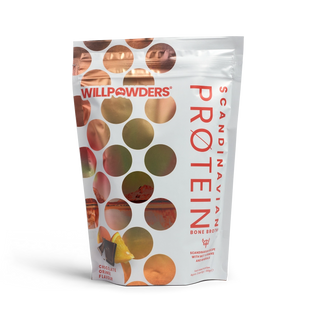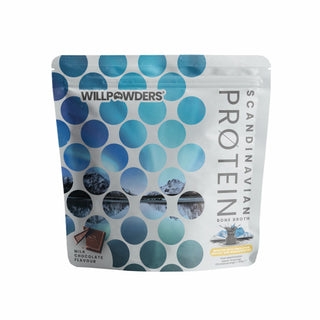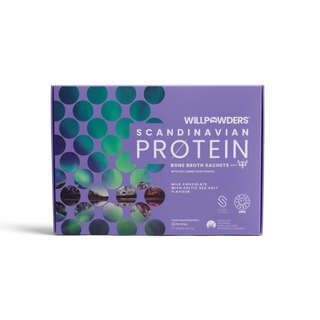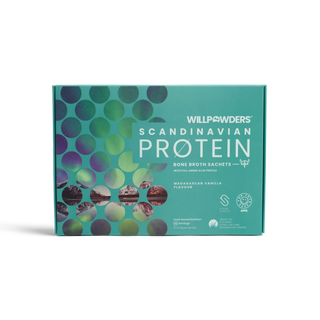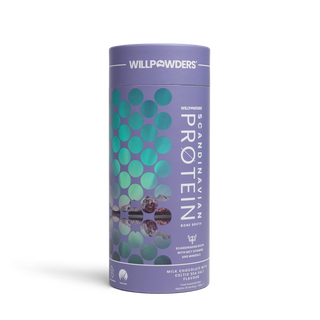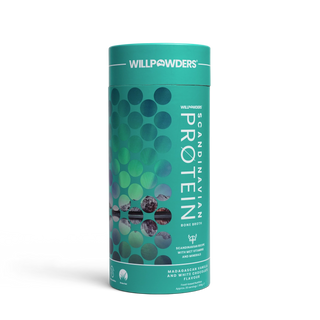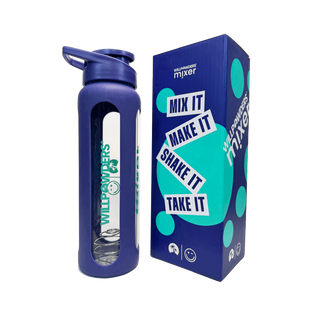
Hack Your Hormones
Spot the Difference Between MCT Oil and Coconut Oil
MCT 101: the one in which we debunk the myth that coconut oil does the same things as MCT oil.
In your quest to eat foods that maintain their close relationship with nature and improve how you fuel your body and brain, we’re here to help you understand why you might want to choose the refinement of MCT oil rather than coconut oil as part of your wellness odyssey.
Coconut oil aids weight loss and brain function? Nope, you’ll need C8 MCT oil for that
It wasn't aeons ago that coconuts exploded into the lives of us folk from cold climes. For a lot of us, coconuts were things encountered in the Bounty bars of childhood or glued together in Great Auntie Alice’s macaroons. Or they were a hairy wooden novelty from the fair that needed a hammer and a chisel to crack. Meanwhile, those familiar with a coconut’s hidden delights celebrated its existence, laughing quietly at the poor uninitiated folk. Until the turn of the century, the coconut universe of wellness seemed a whole mirage away. Water with electrolytes and sumptuous, sweet smelling oil that created fragrant cuisine or helped skin stay supple were things we would come to learn.
And then there was a whisper that coconut oil helped with weight management. Had we died and gone to Happy Weight Heaven? Nope, we were barking up the wrong coconut palm tree. Put simply, you need C8 MCT oil benefits to efficiently produce the ketones to fuel up and potentially slim down! The latest published science, August 2024, a metaanalysis review of all the science available up to press on MCT oil compared with a diet rich in LMCTs, concluded that LMCTs simply don’t cut it for weight management in overweight and obesity. BUT MCTs made the cut - they do support greater weight losses in those on weight management programmes.
So, why have I heard that coconut oil aids weight loss?
In the early 2000s, when Dr. Marie-Pierre St. Onge and her team studied weight loss in overweight men, they discovered that a diet rich in medium chain triglycerides (MCT) meant the men lost a pound more during the study than when the diet was rich in long chain triglycerides (LCT). Other studies supported her findings and, in 2008, she showed that a diet rich in MCTs led to more weight loss than a diet rich in olive oil. So began the conflation of ideas about MCT oil benefits and coconut oil. Unfortunately, St. Onge’s research was hastily read in the perpetual search for a magic bullet to wellness and the truth of her findings became somewhat skewed in newspaper headlines. The idea that consuming coconut oil resulted in weight loss was born. That search for the Holy Grail of being a comfortable weight and eating sensuous, satisfying foods meant MCT oil was confused with coconut oil. Off we all trotted to the supermarket with the words ‘cold-pressed’ and ‘virgin’ on our lips and lists.
The misunderstanding prevails. It can feel confusing to understand the difference between the two bounties that coconuts afford us - MCT oil and coconut oil. Once you know, you’ll have the pleasure of rolling your eyes at ‘wellbeing’ bloggers peddling misinformation based on perpetuating urban myths about coconut oil. Step away, raise an eyebrow at their ignorance, quietly unsubscribe. At WillPowders, we do the homework, actually read the scholarly research (not just the conclusions at the end) and you reap the A grade in Acing Wellness. You’re very welcome!

Let’s do some fat profiling
Coconut oil is made up of around 85% LCTs and around 15% MCTs. So coconut oil is twenty parts saturated LCT fat to every three parts MCT. The LCTs are dealt with as saturated fat and are transported to your lymphatic system before reaching your liver. Although coconut oil wins the prize for the food with the most natural amounts of MCTs, closely followed by grass fed butter and other full fat dairy products, your body still has to process LCTs alongside the MCTs so, measure for measure, you are getting very relatively few MCT oils into your body. So, if you’re asking, what is MCT oil, you’d be better off asking, what is MCT oil made of? In answer, it’s the medium chain triglycerides from coconut oil. It’s the MCT oil benefits that have potential weight loss properties. If efficient weight loss or benefitting brain function is your aim, eating coconut oil is comparable to eating a blueberry muffin to reap the benefits of blueberries. Who wouldn’t just cut to eating the punnet of blueberries? It’s a similar scenario with coconut oil - get slick and just have the MCT oil! MCT wellness, now we’re talking …
C8 MCT oil: the real secret agents of coconut oils
Now let’s add in another spanner in the works for generic coconut oil: only a certain number of the MCTs in coconut oil are associated with weight control and brain energy. C8 MCT oil is the real elite performer for ketones that will fuel the brain but it accounts for only 6-8% of the fats in coconut oil. If you’re trying to sub coconut oil for MCT C8 oil then, it’s a little like looking for a needle in a haystack.
Take the stage, C8. We created WillPowders C8 MCT Oil so that the benefits of a diet rich in C8 MCT can be yours. And, to make adding MCT oils to your diet even easier, we also created MCT Keto Creamer which uses MCT powder and grass fed butter to make a WillPowders Coffee. When you ask, does MCT break a fast, we can safely say that one of our travel sachets or a teaspoon of the Keto Creamer won’t so it could be plain sailing until your eating window. These two powerhouses give you the versatility you need to eat a diet rich in MCT oil because you can cream hot drinks and cook up dishes at mealtimes too. In this way, you can create MCT foods for weightloss - MCT Pesto, for lunch, anyone? Many just quaff the MCT oil neat from a spoon when they need a quick brain energy boost when they feel ‘hanger’ kicking in!
Sourced from premium Indonesian coconuts, our MCT oils have been isolated from the mother source via a hexane free process to provide you with the creme dela creme of MCT. Unlike other, cheaper C8 MCT oils which have been chemically processed, our MCT oil is an example of a refined food having more potential health benefits than the less refined source. Whereas we would be wise to spurn sugar in refined form (and maybe cane sugar in any form in favour of a good fat), there’s always an exception to the rule and MCT oil is one example of this as the benefits amplify once they are isolated from the more generic coconut oil. In this way, you can dispense with the LCTs, should you choose, and cut straight to the good stuff.

How to use MCT oil for weight loss
The speedy quick absorption of MCT oil before you can say, Pass me that croissant! helps manage cravings and hunger if you are sticking to mealtimes to eat and eradicating snack time. Here’s where it gets interesting. MCTs are absorbed and transported within the body differently to LCTs. Both MCT and LCTs are digested to their respective fatty acids but LCTs end up in the lymphatic system because of their larger size, once they’ve taken a turn around that whole system, they’ll eventually rock up at the liver but, even then, they won’t be pumping out ketones for your hungry brain. By that time, we might well have scoffed a scone to relieve the craving. Note that LCTs don't ever reach the brain (Figure 5), no matter how many hard maths equations you force it to solve! MCT oil doesn’t require this part of our body’s fat processing system and it travels straight to the liver from the gut via what is called the portal system. This means it’s absorbed and can be utilised quickly to produce ketones. MCT oil can be described as acting more like glucose than fat, which is great because our brains love to get energy from easily sourced glucose. It’s important to remember that our brains, which account for about 2% of our body mass, use 20% of our energy intake, but, it is keeping us alive so we say, fill your boots (with ketones), brain!
However ...
Of course, the caveat is that if we are consuming MCT oil, we aren’t going to feed the brain or body huge amounts of glucose anymore because we are now aware what huge and endless amounts of sugars in our blood torrent means for our health - they’re the red carpet welcoming Type 2 diabetes into our lives and all its horrifying attendant comorbidities, including, ironically, making the brain unable to use glucose as we age. The brain will always prioritise its energy needs over your body’s energy needs and, under stress, its search for glucose will release chemicals that make you feel low in mood, shaky and hungry. Even if there is plenty of blood sugar in your bloodstream, you’ll reach for a carb to stop the circus. The brain thinks longer term, believing the stress will make it burn through current supply quickly and there’ll be a shortage down the line. Even if you eat the croissant in an attempt to solve the problem, the brain will pump out a chemical to suppress insulin’s ability to deal with the excess blood sugar. If you understand how quickly C8 MCT oil works as a fuel, you don’t have to panic in terms of making the shaky feelings go away. It’s a spoonful of MCT that makes the hanger go down!

Fuelling the brain with ketones is NOT dangerous to health, it’s a boon
Reminding the brain that it can and will use ketones as energy because Mother Nature provided the brain with a contingency plan for survival is no bad thing. For a start, the evidence shows an MCT rich diet is not toxic. If you need reassurance that MCTs are not toxic, read this science. Plus, there is a possibility that switching to this contingency method to fuel your brain will prove beneficial long term. As we get older, our brains can become less efficient at using the preferred glucose fuel source and this can be exacerbated by excesses of sugars over a lifetime which can herald insulin resistance. Allowing more ketones to become available to the brain through increasing MCT oils in our diet can give the brain access to a second fuel source and this might be protective against cognitive decline and Alzheimer’s Disease as we grow older. If you have aging parents, building up the MCT oils in their diets could begin to treat Alzheimer’s Disease before any symptoms show. If you are diabetic, it may also be beneficial to take MCT oil as there is an increased risk of Alzheimer’s Disease for those with the condition.
Is MCT wellness a hoax? Not on WillPowders Watch, it isn’t!
There is no shortage of evidence based on what MCT oil is good for when it comes to our health. The reading lists are endless but you could begin to dip in here to make sure that what we say is true. A whistle stop tour includes:
- MCT oil can up-regulate energy expenditure so if you’re wondering how to use MCT for weight loss, this may be one of the tricks up its sleeve
- MCT may increase satiety more than LCT consumption does and this means you won’t feel the need to eat constantly (which carbs will make you do)
- MCT oil has been shown to be a tool in the prevention of obesity through the play between energy expenditure and feelings of satiety which decrease food intake and body fat
- While having good fats in the diet is preferable to high sugars and carbohydrates, MCT oil, rather than LCT fats, demonstrates better reductions in body weight
- Even a single dose of MCT oil with a range from 5g to 48g can increase fat oxidation and/or postprandial energy expenditure which is a fancy pants way of saying the energy it takes to process the food itself from chew to poo
- MCT oil may lead to a greater suppression of appetite if you are on a fat rich diet than LCTs (sorry about that, coconut oil!)
- When MCT is present in a meal, it delays the body’s request for the next meal and that the next meal is likely to be smaller
- MCT and its subsequent speedy processing in the liver might change the way the satiety hormones, such as cholecystokinin and gastric inhibitory polypeptide express themselves and aid those feelings of being satiated with food
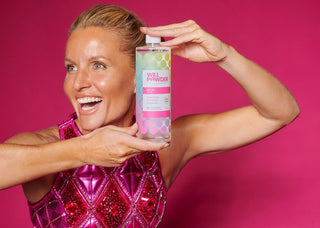
You can still say Let’s be friends! to coconut oil
Remember, it’s not a man made fat. While WillPowders MCT oil and Keto Creamer with its MCT powder kick coconut oil into touch regarding brain function and health, and as a tool for weight management, keeping you away from those pesky carbs, at WillPowders, we love any good fat. Essentially, don’t draw up the divorce papers for coconut oil yet! Coconut oil is naturally solid in your home, barring the odd rare heatwave. The solid nature of coconut oil at room temperature should not be confused with vegetable fats that have been ‘forced’ to be solid at room temperature through undergoing a process of hydrogenation. These are the fats that we want to avoid. They are much beloved of the cake industry as they have a longer shelf life. Shit fats and sugar are the antithesis to health through a higher fat diet. Luckily, coconut oil’s solidity isn’t man made. Hurrah! Mix it into those protein balls you like to rustle up!
Despite its large proportion of saturated fat, we, as a body of humans that include scientists, need to know more about saturated fats before we continue to regard them as the Devil’s own currency.
The original science that made us think this way about saturated fat is coming under increasingly deserved scrutiny. It is worth remembering that what we have been told to do for the last thirty years is replace the energy we would have gained from any fat, but particularly saturated fat, with carbohydrates and sugars and we are currently seeing, feeling and experiencing what has unfolded as a result: Type 2 diabetes and cardiovascular disease in unprecedented numbers.
There is a growing belief that, given the choice between obtaining energy from saturated fat or carbs, we would be wise to choose the fat [cardiologist Dr. Assem Malhotra presents the argument here] so don’t consign your coconut oil to the bin. The fats within it will make you feel fuller than sugar, which has got to be preferable to being ravaged by hunger. Choosing which horse to back in the wider sugar versus fat race means you could put your money on that cold pressed, virgin racer, coconut oil. But, if you want the thoroughbred for satiety, versatility and brain health, back WillPowders C8 MCT Oil, which is equally brilliant to use in the culinary arts that take place in your kitchen. For some MCT Oil recipe inspo, click here! For more info on what makes a good fat and what makes an ugly one, check out our blog ‘The Good, the Bad and the Ugly’.
Further Reading
Duranova, H., Kuzelova, L., Fialkova, V. et al. Coconut-sourced MCT oil: its potential health benefits beyond traditional coconut oil. Phytochem Rev (2024). https://doi.org/10.1007/s11101-024-09969-1
For further reading on brain food for aging parents try Food for the Brain Foundation’s take on MCT oil
Read about the relationship between MCT oil and the brain here Cunnane SC, Courchesne-Loyer A, Vandenberghe C, St-Pierre V, Fortier M, Hennebelle M, Croteau E, Bocti C, Fulop T, Castellano CA. Can Ketones Help Rescue Brain Fuel Supply in Later Life? Implications for Cognitive Health during Aging and the Treatment of Alzheimer's Disease. Front Mol Neurosci. 2016 Jul 8;9:53. doi: 10.3389/fnmol.2016.00053. PMID: 27458340; PMCID: PMC4937039
If you need reassurance that MCTs are not toxic, read this science
The meta-analysis on MCT amounts and links to weight management are here Meta-analyses The impact of medium-chain triglycerides on weight loss and metabolic health in individuals with overweight or obesity: A systematic review and meta-analysis Hui He, Kang Liu, Min Liu, Ai-Jia Yang , Ka-Wing Cheng, Louise Weiwei Lu, Bin Liu , Jie-Hua Chen August 2024
Customer Stories

Kel
Kel is walking talking proof that you can lose weight in your 40s and she wants to encourage those who are struggling to stick with it. With the help of...

Rachel
Rachel is such an inspiration and her story is exactly why we do what we do at WillPowders. Rachel has taken back control with our Collagen, MCT Keto Powder, MCT...
Disclaimer
Our blogs are written with love in the hope that they go some way in helping you feel like the rockstar you are, and whilst we do our due diligence, research like maniacs and fact check our stuff, we know everyone’s journey is different. They are intended to educate and empower you, not usurp medical advice. We would never advise you to stop, adjust, or modify any prescription medication without the direct supervision of your healthcare practitioner, but don’t be afraid to talk to your doctor about your new found knowledge, brought to you by the marvels of nature because they don't know everything! Blogs are always informed by Davinia but often written by a member of the team. Not all blogs reflect Davinia's experiences and sometimes provide alternative perspectives

